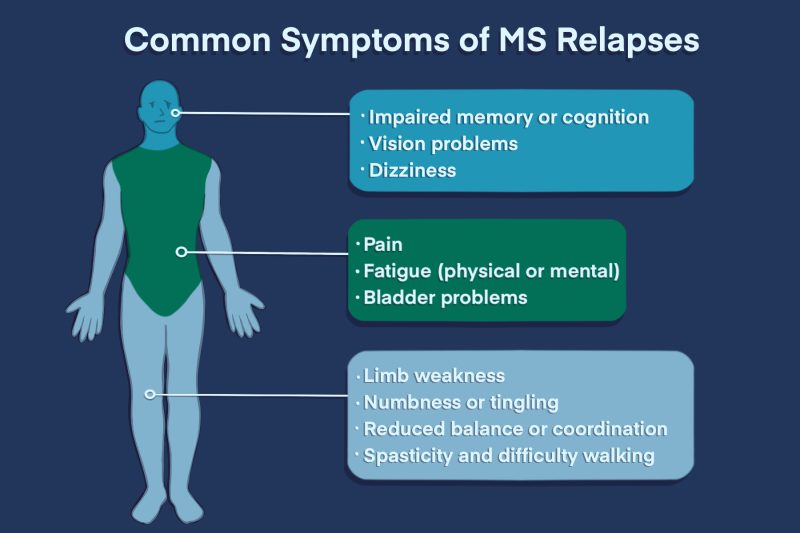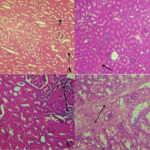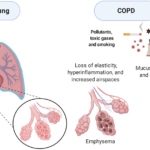Acute Exacerbation of Multiple Sclerosis is a chronic autoimmune disease that affects the central nervous system, leading to a wide range of neurological symptoms. Among the most challenging aspects of MS is the occurrence of acute exacerbations, also known as relapses or flare-ups. These episodes can significantly impact a patient’s quality of life and require prompt attention. In this article, we delve into the causes, symptoms, and effective management strategies for acute exacerbation of multiple sclerosis.

What Is an Acute Exacerbation of Multiple Sclerosis?
An acute exacerbation of multiple sclerosis is defined as the sudden onset of new symptoms or the worsening of existing symptoms lasting more than 24 hours, in the absence of infection or fever. These exacerbations are caused by inflammation and demyelination in the central nervous system, which disrupts the normal transmission of nerve signals.
Exacerbations can vary in severity, from mild sensory changes to significant motor deficits. Understanding the underlying mechanisms and triggers is crucial for effective management.
Causes and Triggers of MS Exacerbations
The exact cause of acute exacerbations in multiple sclerosis remains unclear, but several factors are known to contribute:
- Immune System Dysregulation: MS is an autoimmune condition where the immune system mistakenly attacks the myelin sheath, the protective covering of nerve fibers. This attack leads to inflammation and demyelination, triggering exacerbations.
- Infections: Viral or bacterial infections, such as the flu or urinary tract infections, can activate the immune system and precipitate a relapse.
- Stress: Physical or emotional stress has been linked to the onset of MS flare-ups, possibly due to its impact on immune function.
- Environmental Factors: Extreme temperatures, particularly heat, can temporarily worsen MS symptoms, mimicking an exacerbation.
- Medication Non-Adherence: Skipping disease-modifying therapies (DMTs) can increase the risk of relapses.
Symptoms of Acute Exacerbation in Multiple Sclerosis
The symptoms of an acute exacerbation depend on the location of the inflammation in the central nervous system. Common symptoms include:
- Motor Symptoms: Weakness, spasticity, or difficulty walking.
- Sensory Symptoms: Numbness, tingling, or burning sensations.
- Visual Disturbances: Blurred vision, double vision, or optic neuritis.
- Cognitive Changes: Memory problems, difficulty concentrating, or brain fog.
- Coordination Issues: Tremors, loss of balance, or clumsiness.
It is essential to differentiate between true exacerbations and pseudo-exacerbations, which are temporary symptom flare-ups caused by external factors like heat or fatigue.
Diagnosing an Acute Exacerbation
Diagnosing an acute exacerbation involves a thorough clinical evaluation by a neurologist. Key steps include:
- Medical History: Assessing the onset, duration, and nature of symptoms.
- Neurological Examination: Evaluating motor, sensory, and cognitive functions.
- Magnetic Resonance Imaging (MRI): Identifying new or active lesions in the brain or spinal cord.
- Exclusion of Other Causes: Ruling out infections, metabolic imbalances, or other conditions that may mimic an exacerbation.
Treatment Options for Acute Exacerbation of Multiple Sclerosis
The primary goal of treatment is to reduce inflammation and accelerate recovery. Common approaches include:
- Corticosteroids: High-dose intravenous or oral corticosteroids, such as methylprednisolone, are the first-line treatment for acute exacerbations. They help reduce inflammation and shorten the duration of symptoms.
- Plasma Exchange (Plasmapheresis): For severe cases unresponsive to steroids, plasma exchange may be considered to remove harmful antibodies from the blood.
- Disease-Modifying Therapies (DMTs): Long-term use of DMTs can reduce the frequency and severity of exacerbations by modulating the immune system.
- Symptomatic Management: Addressing specific symptoms, such as muscle relaxants for spasticity or antidepressants for mood changes, can improve quality of life.
Managing and Preventing MS Exacerbations
While not all exacerbations can be prevented, certain strategies can minimize the risk:
- Adherence to DMTs: Consistently taking prescribed medications is crucial for long-term management.
- Healthy Lifestyle: Regular exercise, a balanced diet, and stress management can support overall well-being.
- Infection Prevention: Practicing good hygiene and staying up-to-date with vaccinations can reduce the risk of infections.
- Monitoring Symptoms: Keeping a symptom diary can help identify early signs of a relapse.
Acute exacerbation of multiple sclerosis is a complex and challenging aspect of the disease, requiring timely diagnosis and appropriate treatment. By understanding the causes, recognizing the symptoms, and implementing effective management strategies, patients and healthcare providers can work together to minimize the impact of these episodes. With advancements in medical research and therapeutic options, the outlook for individuals living with MS continues to improve.

